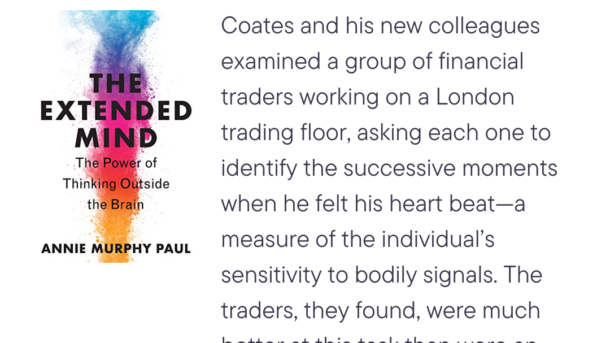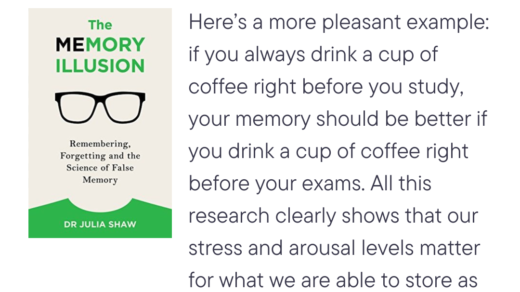Coates and his new colleagues examined a group of financial traders working on a London trading floor, asking each one to identify the successive moments when he felt his heart beat—a measure of the individual’s sensitivity to bodily signals. The traders, they found, were much better at this task than were an age- and gender-matched group of controls who did not work in finance. What’s more, among the traders themselves, those who were the most accurate in detecting the timing of their heartbeats made more money, and tended to have longer tenures in what was a notably volatile line of work. “Our results suggest that signals from the body—the gut feelings of financial lore—contribute to success in the markets,” the team concluded. Confirming Coates’s informal observations, those who thrived in this milieu were not necessarily people with greater education or intellect, but rather “people with greater sensitivity to interoceptive signals.” Interoception is, simply stated, an awareness of the inner state of the body. Just as we have sensors that take in information from the outside world (retinas, cochleas, taste buds, olfactory bulbs), we have sensors inside our bodies that send our brains a constant flow of data from within. These sensations are generated in places all over the body—in our internal organs, in our muscles, even in our bones—and then travel via multiple pathways to a structure in the brain called the insula. Such internal reports are merged with several other streams of information—our active thoughts and memories, sensory inputs gathered from the external world—and integrated into a single snapshot of our present condition, a sense of “how I feel” in the moment, as well as a sense of the actions we must take to maintain a state of internal balance.
Introducing the concept of Interoception, which is the awareness of the inner state of the body, and how it is integrated with other streams of information such as thoughts and memories. Interoception is something that can be pretty overlooked, as its not really measurable or visible and dosen’t seem to have an obvious effect on results. However, when required to make quick and accurate decisions, as in the case of trader, it turns out having a good sense of self-awareness about one’s emotional state actually complements your cognitive abilities in making good decisions.



